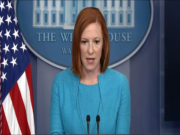It is easy to pass quickly over humor, with a knowing smile, in pursuit of the matters of the day. And three days after a landmark election it was easy to pass by the parody of the Onion. Some humor is worth pausing over, however, as it is the truth in humor that makes it humorous, and because someone at the Onion seems really to understand the motives underlying the campaign finance crusade.
The Onion “reports” that Royal Crown Cola urges “sweeping restrictions on the amount Coke and Pepsi are allowed to spend on advertisements.” “Third Party Cola Demands Ad-Campaign-Finance Reform ,” The Onion, Issue 42.46, November 10, 2006. “RC Cola’s plan would eliminate the use of corporate money to pay for broadcast advertising, as well as ensure that paid advertisements focus only on the demonstrably positive aspects of the cola in question.” Ads featuring paid spokespersons would be banned. “[If a celebrity] wants to speak out on behalf of a specific product on their own time, that’s their business, but to do it for pay is tantamount to bribery,” said RC Cola’s vice president and spokesperson (presumably for pay).
Like recent campaign finance restrictions on broadcast advertising, another RC Cola proposal would not suffer from vagueness, but may be hopelessly overbroad: “a Pepsi ad could still depict a delicious-looking 20-ounce bottle of soda [but] it will be limited to five beads of condensation per inch of ad space or second of broadcast time.” As the Onion reports, “[e]xperts predict that Coke and Pepsi will likely find loopholes in the new law by using unlimited corporate soft-drink money on ‘issue ads,’ which will educate the public about such concepts as taste, thirst, quenchiness, or satisfaction.” RC Cola, however, says it “refuses to give up [its] fight to provide Americans with ‘a bold new choice.’”
RC Cola needn’t mention its interest in “reform” for us all to see it. But like all campaign “reformers” it claims nothing but a selfless concern for an “American consumer … in crisis” due to “two-brand dominance” that now demands an “equal playing field.” There is a certain instrumentalism in “reform.” It works nakedly to the advantage of RC Cola in the cola wars. But in campaign finance it transcends party, the plight of any political actor, and is therefore wider than the ambitions of RC Cola, but equally interested. John Samples’ latest book shows this was always the case: campaign finance reform is about “the Progressive vision of politics and its trust in government under the control of an ethical and enlightened elite.”
The truth is that even non-partisans care about policy, perhaps as much as RC Cola cares about revenues and advertising budgets. So to return a question so often asked rhetorically by reformers pushing a reform agenda: “Why would [non-partisans] spend multiple millions over the last decade [to remake the campaign finance landscape] if they weren’t interested in winners and losers; policy and outcomes?”
It is often easy to miss the truth and significance in parody. And easy to miss the truth of campaign finance reform, and the significance in titles of reform tracts such as “Campaign Finance Laws and the Rupert Murdoch Problem.”














